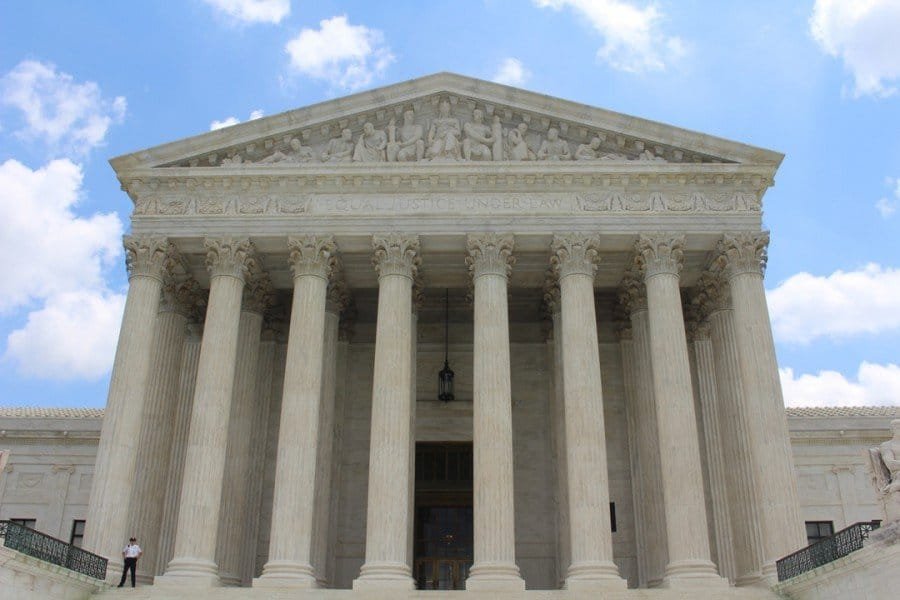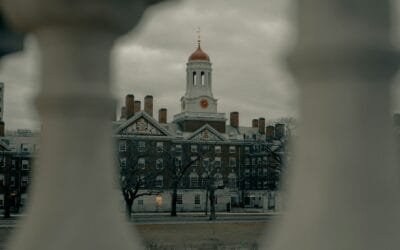In recent years a movement has been underway to force lawyers to provide their services to indigents free of charge (that is, to provide their services “pro bono publico” from the Latin “for the public good”). In its position paper TAFOL makes clear its opposition to this movement, stating that mandatory pro bono is immoral as an infringement on a lawyer’s absolute right to choose the work he wishes to undertake and that mandatory pro bono is unconstitutional. In the following continuation of the position paper, TAFOL raises objections to mandatory pro bono on practical grounds.
Historically, lawyers (like many other professionals) have contributed their professional efforts to help those who could not afford their services. This is called pro bono publico service, from the Latin “for the public good.” In recent years, there have been proposals to make this form of charity mandatory. The proposals would require lawyers to render services to the poor as a condition of continuing licensure, independently of the lawyers’ desires, even if they have moral objections to the service or find the work or the client abhorrent for other reasons. The work would be compelled without compensation, or for compensation insufficient to induce the lawyer to offer his services voluntarily. A lawyer who refused to serve would lose his right to practice his profession.
The proponents of mandatory pro bono believe that it is a golden, noble ideal, pure in principle. Most opponents accept this premise, but regard mandatory pro bono as unworkable in practice. The Association for Objective Law (“TAFOL”) agrees that mandatory pro bono will not work. However, its main objection is more fundamental. TAFOL holds that mandatory pro bono is immoral, inimical to basic American principles, and subject to fatal constitutional objections.
I. The Mandatory Pro Bono Movement
The notion of mandatory pro bono has received serious, widespread consideration over the past several years. In New York, for example, The Committee to Improve the Availability of Legal Services was appointed by Chief Justice Sol Wachtler to investigate, among other things, implementing mandatory pro bono. Based on an alleged “growing need for legal services for the poor”2 and a “disappointingly low” percentage of lawyers volunteering their services to the poor, the Committee is urging the adoption of the “modest” requirement that every New York lawyer be required to devote at least 40 hours every two years to public service. (Certain attorneys could avoid service by making a monetary payment, others by transferring their obligations to another attorney.) This plan is opposed by the New York State Bar Association, which suggests an alternative based on lawyers volunteering their services.
In other jurisdictions, different approaches have been taken. A new set of Disciplinary Rules of Professional Conduct adopted by vote of Texas lawyers in May 1989 replaces the word “should” with the word “shall” in a section dealing with a lawyer’s obligation to serve when appointed by a tribunal, thus giving courts the right to conscript lawyers in individual cases. In Maryland, a select committee headed by Congressman Benjamin Cardin recommended that lawyers be required to take one pro bono case per year. However, the Maryland Court of Appeals shelved the recommendation pending results of a statewide survey of voluntary pro bono efforts. As for the federal courts, in Mallard v. United States District Court, 109 S. Ct. 1814 (1989), the Supreme Court addressed 28 U.S.C. §1915(d), which allows a court to request a lawyer to handle a case for an indigent litigant. Although the Court (in a five to four decision) rejected the idea that this statute can be used to require pro bono services, it declined to express an opinion as to whether federal courts have inherent power to force lawyers to provide legal services.
In addition, movement towards mandatory pro bono (ranging from murmurs of support to organized activity) has been reported in Florida, Hawaii, Illinois, Louisiana, Massachusetts, North Dakota, Oregon and Wisconsin.
II. Mandatory Pro Bono is Immoral, Unconstitutional and Impracticable
A. Mandatory Pro Bono Contravenes the Moral and Political Principles Upon Which the United States Is Based
The ethical basis of mandatory pro bono is the notion that an individual has no right to his own life but rather has a moral duty to live for others and sacrifice his own values to their wishes and needs. But the United States is, properly, rooted in another ethics. The United States was founded on the principle that every individual should and may act in his own self interest and by his own judgment, so long as he allows others to do the same. The profound political principle which implements this ethical principle, and which has made the United States the freest country on earth, is the principle of individual rights.
The fundamental right is the right to life, but this means more than freedom from an arbitrary firing squad. Life is a process of self-sustaining and self-generating action. The right to life means “the freedom to take all the actions required by the nature of a rational being for the support, the furtherance, the fulfillment and the enjoyment of his life.”3 The right to life implies the right to earn, use and dispose of property. “[T]he man who has no right to the product of his effort has no means to sustain his life. The man who produces while others dispose of his product, is a slave.”4 The right to life also implies a right to the pursuit of happiness, which means the right to live for oneself and choose what constitutes one’s own private happiness and to work for its achievement as one sees fit.
In the language of the Declaration of Independence: “We hold these truths to be self-evident, that all men are created equal, that they are endowed by their Creator with certain unalienable Rights, that among these are Life, Liberty and the pursuit of Happiness. That to secure these rights, Governments are instituted among Men . . . ”
Rights are inalienable; they are absolute. There are no circumstances under which a right may be infringed. There can be no rights if they may, at the discretion or whim of the government or the majority, be invaded in any way, at any time, to any degree. Once such an invasion is permitted, the notion of something superior to the rights of the individual has been accepted.
The arguments for mandatory pro bono are hostile to these principles. It is often suggested that the indigent have a right to legal services, that this “right” conflicts with the rights of lawyers to choose the work they wish to do and to refuse to work for free, and so the rights of lawyers must yield to some degree. But rights pertain to freedom of action. A man has a right to free speech, but not a right to commandeer someone else’s radio station. A man has the right to work to earn enough money to buy a house and actually to buy that house if someone wishes to sell it to him. He has no right to a house such that someone else is required to provide it to him. Likewise, a man has the right to engage a lawyer to represent him. That is not at all the same thing as the notion of a “right” to legal services which would entitle that man (or the government on his behalf) to force a lawyer to represent him for free. Needs are not rights, and no supposed need of the indigent for legal services can justify any violation of a lawyer’s rights.
Proponents of mandatory pro bono argue alternatively that along with rights go obligations. They say that a right – in this case the right to practice law – is a grant of the government.5 Since it is a grant, they believe, certain duties may be demanded in return – in this case the duty to meet the needs of the indigent for legal services. But the very essence of the concept of rights is that individuals may act by right, without anyone’s permission. That is the meaning of freedom. Permissions may be withdrawn at whim, at any time. The only “obligation” of an individual in society is “to respect the rights of others, if one wishes one’s own rights to be recognized and protected.”6
A proper government protects the rights of lawyers to act and work as they wish. Under mandatory pro bono, government would do just the reverse; it would treat rights
as conditional gifts and, in the name of the “needs of the indigent,” command: “Work for him.”
Once any bogus right is proclaimed, once rights are demoted to permissions and the absolutism of rights is breached, there can be no limit to the number of counterfeit rights that can be concocted and which will require “adjustment” of the actual rights of others: rights to free dental care or mechanical work, rights to cars and houses and VCRs. Inevitably, actual rights are swamped and drowned for everyone, the needy and the not. How ironic and tragic it would be if, at the same time the people of Eastern Europe are struggling to break the chains of communism, the heirs of Jefferson were to declare: “From each according to his abilities, to each according to his needs.”
B. Mandatory Pro Bono Is Unconstitutional
Mandatory pro bono offends several provisions of the United States Constitution.
First, the Fifth Amendment prohibits the taking of private property for public use without just compensation. A lawyer’s time and effort constitute his stock in trade—his property. Thus any government edict that denies him full payment for his services is unconstitutional. DeLisio v. Alaska Superior Court, 740 P.2d 437 (Alaska 1987); State ex rel. Scott v. Roper, 688 S.W.2d 757 (Mo. 1985); Bedford v. Salt Lake County, 22 Utah 2d 12, 447 P.2d 193 (1968).
Second, the Thirteenth Amendment states: “Neither slavery nor involuntary servitude . . . shall exist within the United States or any place subject to their jurisdiction.” Although the Thirteenth Amendment has traditionally been viewed as not affording protection from temporary service coerced by the government, the broad language of the amendment—and, indeed, common sense—suggest that mandatory pro bono is involuntary servitude. That was the reaction of the court in one case in which a lawyer appointed pursuant to statute to represent a person in a sanity hearing was denied payment. The court in that case stated: “For the legislature to attempt to compel a lawyer to work by passing a statute requiring a judge to order it done would be to take his property without giving just compensation, or to impose a form of involuntary servitude upon him.” Bedford v. Salt Lake County, 447 P.2d at 194-95.
As stated in a classic dissent: “The words ‘involuntary servitude’ . . . include something more than slavery in the strict sense of the term; they include also serfage vassalage, villenage, peonage, and all other forms of compulsory service for the mere benefit or pleasure of others.” Slaughter-House Cases, 82 U.S. (16 Wall.) 36, 90 (1873) (Field, J., dissenting).
Third, the First Amendment right of free speech includes both the right to refrain from speaking at all and the right to refuse to advocate positions with which the speaker disagrees. Wooley v. Maynard, 430 U.S. 705 (1977); West Virginia State Board of Education v. Barnette, 319 U.S. 624 (1943). By requiring a lawyer to support positions or governmental activities to which he is opposed (rent control or the welfare system, for example), mandatory pro bono violates this right.
Finally, mandatory pro bono would violate the equal protection clause of the Fourteenth Amendment by singling out lawyers to provide special contributions (in time or money) to support the poor. See Cunningham v. Superior Court, 177 Cal. App. 3d 336, 222 Cal. Rptr. 854 (1986). On what basis can the public declare that it refuses to suffer taxation to provide legal services to the poor and yet impose this burden on just one segment of the population, namely lawyers?
C. Mandatory Pro Bono Is Impracticable.
Many practical objections to mandatory pro bono have been raised. Certain of those objections, and additional practical objections, are summarized below. The practical problems are serious, self-perpetuating and self-expanding. They flow directly from the fact that mandatory pro bono is a system of forced labor by unwilling lawyers on unchosen matters.
1. The implementation of mandatory pro bono will necessitate the creation of a complex bureaucracy. Bar associations will have to gear up to make sure that every lawyer serves his time. They will have to develop guidelines for mandatory pro bono, such as when a lawyer may be excused from serving (and who has the power to excuse him) as well as punishments for lawyers who refuse or fail to serve adequately. Bar associations, if they wish to make sure that the supposed “unmet legal needs” of the poor are indeed met and that lawyers do not attempt merely to offer their services to causes in which they believe, will have to establish elaborate systems for registering the “needs” of indigent individuals and matching them with the conscripted attorneys.
2. There will undoubtedly be difficulty in matching particular legal problems with available lawyers who have appropriate expertise. The legal problems likely to be presented are not those with which all lawyers are familiar. Not every lawyer is knowledgeable in the areas of landlord-tenant law, civil rights, or welfare entitlements.
3. The legal services provided will not be of high quality. They will be sloppy because they will be provided by lawyers without any expertise in the relevant area of the law, because lawyers will not be working for themselves, because they will not, in many cases, believe in their client’s cause, because they will be resentful. The point is proved by one glance at the goods produced in any totalitarian state, where the workers do not work for themselves, cannot keep the product of their labor, and are not free to direct their own careers or lives.
4. The substantive law will be immensely complicated by mandatory pro bono, and there will be much litigation on the new issues. For example: What are the standards of care for lawyers rendering mandatory pro bono service? If a lawyer is not in control of the matters on which he works, can he be held responsible for ignorance of the relevant area of law? (If he is not responsible, it is easy to imagine what level of service will be rendered.) One would expect an increase in malpractice suits by mandatory pro bono clients—for which more pro bono attorneys will be needed.
5. Who will determine what is or is not pro bono, and by what standard? Will every demand of an indigent person for legal aid be fulfilled? Will there be a screening process by which legal demands are evaluated for colorable merit or “need”? And if so, who will perform the evaluation? What happens when a lawyer has a moral objection, a conscientious objection, to a particular matter, such as the pursuit of welfare benefits? Will lawyers not only be forced to work without pay but also for causes or clients they feel deeply are immoral? If conscientious objection is permitted, what proof of his convictions will the objector be required to adduce? Who will judge the bona fides of the conscientious objection?
6. The “unmet legal needs” of the indigent will explode, in large part because substantive law issues will expand but also simply because legal services will be free. Persons who never dreamed of instituting legal proceedings will do so because they will see no reason not to do so, and the demand for free legal services will skyrocket. Just such a situation has occurred as a result of Medicare, where there has been a skyrocketing demand for medical services (and a proportional increase in medical costs). At the same time, voluntary pro bono service will decline. Lawyers have only so much time, and mandatory pro bono will consume a significant amount of the time that would otherwise have been spent in volunteer work—work which would have been enthusiastically chosen, which would have expressed the lawyer’s convictions and which the lawyer would have felt qualified to perform.
Conclusion
Mandatory pro bono would violate the rights of lawyers. It would subvert basic principles of rights in general, and for everyone. Ultimately, it would not help the indigent with their legal problems. For these reasons, The Association for Objective Law opposes mandatory pro bono and urges that all proposals for mandatory pro bono be rejected.
Copyright © The Association for Objective Law. All rights reserved. Republished in Capitalism Magazine by permission of TAFOL.
References
- The Association for Objective Law is a national organization formed in 1988. Its members are lawyers, law students and others who wish to advance Objectivism, the philosophy of Ayn Rand, as the basis of a proper legal system. The Association for Objective Law currently has members in 15 states and 7 foreign countries.
- The mandatory pro bono movement assumes that many poor in the United States have legitimate unmet legal needs, and that volunteer service by lawyers is insufficient to fulfill those needs. TAFOL takes no position here as to whether a high level of such legitimate unmet legal needs truly exists. TAFOL’s position is that voluntary service is the only appropriate way to meet whatever needs do exist.
- Ayn Rand, “Man’s Rights,” in The Virtue of Selfishness, 124 (1964).
- Id. at 125.
- TAFOL does not address here the propriety of government licensing of lawyers. However, under current law, the government has no power to deny a license where the applicant is qualified. Schware v. Board of Bar Examiners, 353 U.S. 232, 238-39 (1957). Thus, the fact that a lawyer is licensed in no way implies that he has been granted a “privilege” by the government to practice law.
- Ayn Rand, “The Wreckage of the Consensus,” in Capitalism: The Unknown Ideal, 227 (1966).










